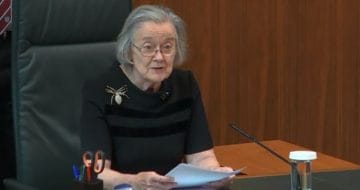UK’s highest bench is guilty of ‘excessive judicial activism’

The Supreme Court should be abolished and replaced with case-by-case panels of judges from the Court of Appeal, a right-wing think tank has argued.
The UK’s highest bench is guilty of “excessive judicial activism”, “institutional hubris” and often endorses “outcomes which conventional legal reasoning would struggle to sustain”, writes Derrick Wyatt QC in an essay for Policy Exchange.
Wyatt, an emeritus professor of law at the University of Oxford, says:
“If there is a problem with the judicial approach of the UK Supreme Court, I think it is its willingness on occasion to decide cases on policy grounds, without disclosing an adequate or convincing legal basis.”
Wyatt’s remarks come after the Supreme Court came under fire from “some lawyers” for taking upon “the role of policy-driven law reformer rather than analyst and legal interpreter” in controversial cases, such as the Miller case and last year’s ruling that Boris Johnson’s prorogation of parliament was unlawful.
The 18-page paper proposes replacing the Supreme Court with panels of five or more judges from the Court of Appeal of England and Wales, the Court of Appeal of Northern Ireland and Scotland’s Inner House of the Court of Session. Each panel would be assigned on a case-by-case basis.
Wyatt, a former barrister at Brick Court Chambers, a London-based set specialising in commercial, competition and public law, also suggested naming the replacement the “Upper Court of Appeal” or “the UK Final Court of Appeal”. The new court could be located in the current Supreme Court building and could continue the practice of sitting in Belfast, Cardiff and Edinburgh where appropriate, he argues.
Wyatt says such structural reform would combat against the perception of the Supreme Court as “a judicial policy making centre independent of government or parliament”.
He continues:
“The result of the above change would be to broaden the judicial base of the final court of appeal, and to ensure that all judges sitting at the final stage of appeal were also judges deciding cases at the level below that final stage, and so remained accustomed to the discipline of writing judgments which would be subject to the scrutiny of their fellow judge.”

